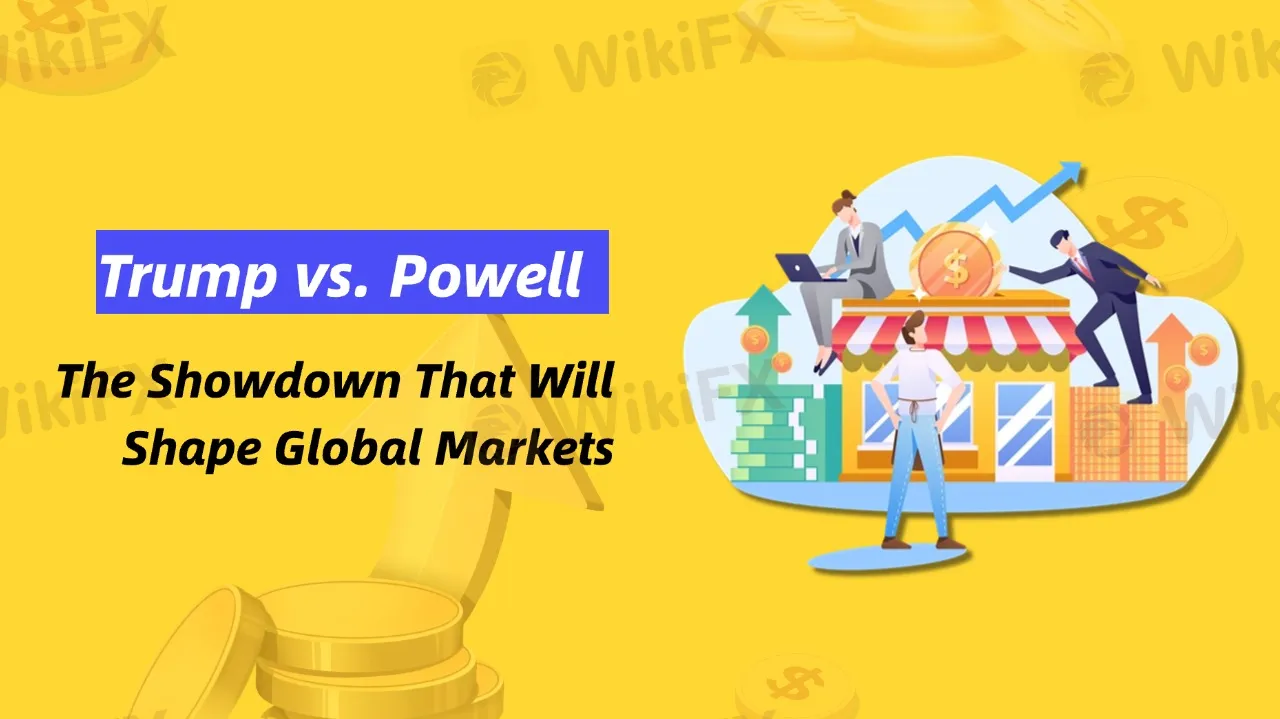简体中文
繁體中文
English
Pусский
日本語
ภาษาไทย
Tiếng Việt
Bahasa Indonesia
Español
हिन्दी
Filippiiniläinen
Français
Deutsch
Português
Türkçe
한국어
العربية
Trump vs. Powell: The Showdown That Will Shape Global Markets
Abstract:The financial market is in a downturn, with Trump and the Federal Reserve each making their own calculations, while investors anxiously watch from the sidelines. Their decisions will determine the market’s direction!

The confrontation between Trump and the Federal Reserve appears to be a standoff between monetary and fiscal policies, but at its core, it is a clash of power and credibility. Trump aims to influence market trends through trade wars and other measures, while Powell insists on the Feds independence and remains cautious about cutting interest rates.
The market widely expects the Fed to step in with rate cuts if the economy slows down, but Bank of America warns that if inflation remains high, the Fed will not easily back down to avoid damaging its credibility. This battle is not just about the U.S. economy—it is a focal point for global investors.
Trumps tariff policies have caused significant market volatility. After a sharp decline in U.S. stocks, he has shown no signs of calming the markets, shaking investor confidence.
Meanwhile, the Fed faces a dilemma: cutting rates too soon could send the wrong signal and lead to inflation spiraling out of control, while delaying too long could fuel market panic and increase the risk of recession. In this high-stakes game, investors are mere spectators, and the uncertainty in market expectations is further destabilizing the financial landscape.
Future Challenges: How Should Investors Respond?
If the U.S. economy falls into recession, the consequences will ripple across the globe, leaving investors to navigate an increasingly complex landscape. While the market expects the Fed to cut rates only in the event of a true recession, in the short term, policy uncertainty and inflation pressures will continue to weigh on financial markets.
Investors must closely monitor policy developments and adjust their asset allocations accordingly to brace for potential market turbulence. This “game of chicken” remains unresolved, and market uncertainty is likely to persist.

Disclaimer:
The views in this article only represent the author's personal views, and do not constitute investment advice on this platform. This platform does not guarantee the accuracy, completeness and timeliness of the information in the article, and will not be liable for any loss caused by the use of or reliance on the information in the article.
Read more

Never Heard of Dynasty Trade? Here's Why You Should Be Worried
Have you heard this name before? No , it’s time you do because staying unaware could cost you. This platform is currently active in the forex trading and has been linked to several suspicious activities. Even if you’ve never dealt with it directly, there’s a chance it could reach out to you through ads, calls, messages, or social media. That’s why it’s important to know the red flags in advance.

WEEKLY SCAM BROKERS LIST IS OUT! Check it now
If you missed this week's fraud brokers list and are finding it difficult to track them one by one — don’t worry! We’ve brought together all the scam brokers you need to avoid, all in one place. Check this list now to stay alert and protect yourself from fraudulent brokers.

Catch the Latest Update on BotBro & Lavish Chaudhary
BotBro, an AI-based trading platform, became popular in India in 2024—but for negative reasons. Its founder, Lavish Chaudhary, who gained a huge following by promoting it heavily on social media. Since then, he has become well-known, but for many controversies. Let’s know the latest update about Botbro & Lavish Chaudhary.

Trading Other People’s Money | What Prop Firms Don’t Tell You
Proprietary (prop) trading firms have become increasingly popular. They give traders the chance to trade with larger amounts of money without risking their own savings. For many, this sounds like the perfect opportunity to grow faster and earn more. But while the benefits are appealing, there are also risks and hidden rules that traders must understand before joining a prop firm.
WikiFX Broker
Latest News
RM750 Million Lost to Investment Scams in Just Six Months
5 things to know before the Thursday open: Meme stock revival, Trump's Fed visit, Uber's gender feature
Why Octa Is the Ideal Broker for MetaTrader 4 & 5 Users
CNBC's Inside India newsletter: Leaving, but not letting go — India's wealthy move abroad, but stay invested
Moncler raises prices on tariffs, may postpone store openings if downturn worsens
Titan FX Adds WhatsApp and Telegram for Enhanced Support
Nestle flags further potential price hikes as tariffs, commodities weigh on margins
Stop Level Forex: How Does it Help Traders Prevail When Losses Mount?
eToro Launches Spot-Quoted Futures Trading in Spain
Titan FX Introduces Redesigned Client Cabinet for Enhanced Usability
Currency Calculator


